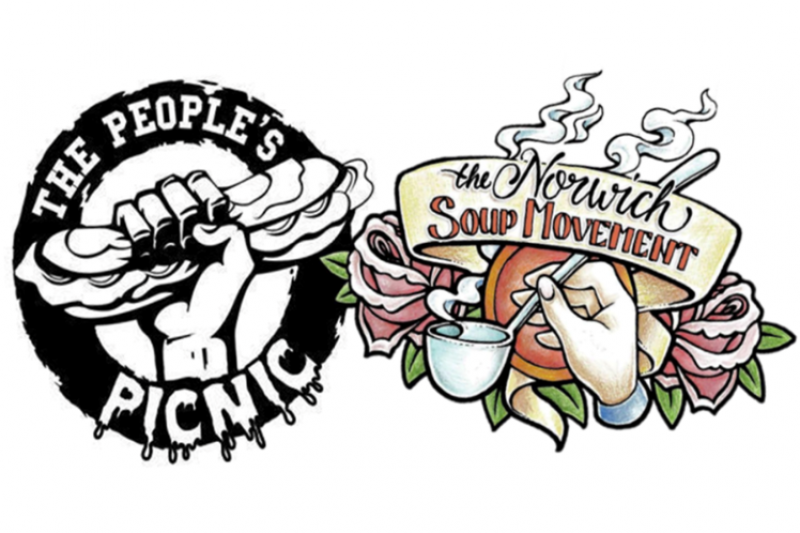It's not extinct, but it might as well be.
GETTY
The British National Party is not quite dead yet. On Friday,the Electoral Commission announced that the BNP had failed to confirm its registration details, and so had been removed from the official register of political parties. Within hours the party posted the necessary paperwork to the Electoral Commission, and expects to be re-registered by the end of this week.
Not that it matters much. The BNP might not be officially extinct, but the party has already descended into irrelevance. From 563,743 votes in 2010, the party won only 1,667 votes in the general election last year. It has collapsed from 338 councillors to just two, and lost both its European Parliament seats to boot. Only a few hundred members remain. The party’s offices in Wigton, in Cumbria, appear abandoned, with party work taking place at the home of one of the BNP’s admin staff instead, according to Matthew Collins, director of research for Hope not Hate.
The BNP’s collapse is partly a classic tale of factionalism and vicious infighting destroying a political party. Many BNP members came to loathe Nick Griffin, who hoarded power during his 15 years as BNP chairman from 1999, almost as much as those outside the party.
For years, an ugly war simmered between Griffin and Andrew Brons, the two men elected as BNP MEPs in 2009. Brons came within nine votes of ousting Griffin as leader in 2011, and then quit the party in 2012, railing against how Griffin had “destroyed the party”. A year before Brons left to join the British Democratic Party, 400 BNP members moved to the English Democrats with Eddy Butler, a senior BNP figure, in 2011. Griffin was eventually expelled from the BNP in October 2014 for "trying to cause disunity".
The BNP’s strategy was also flawed. After successes in 2008 and 2009, the BNP “gambled everything” in the 2010 general election, Collins says. The party stood in 339 seats at the general election, and won over half a million votes: 1.9 per cent of UK voters. Yet the election “nearly bankrupted us,” admits Stephen Squire, a party spokesman and London BNP organiser. Two hundred and sixty-seven candidates got under five per cent, leaving the BNP to foot the bill for £133,500 in lost deposits.
But even the best-organised party in the world could not have overcome the British public’s contempt for crude racism. Every generation in Britain is becoming less racist than the last: while almost half of those born before 1950 oppose marriage between black and white people, only 14 per cent of those born since 1980 do. This was reflected in the BNP’s poor performance among young people: 18-24-year-olds provided only 11 per cent of the BNP’s support, compared with 40 per cent for the National Front in the 1970s. Unlike the most successful far-right parties, the BNP failed to link immigration to a wider political narrative, allowing the party to be depicted as racist thugs: BNP policies were far less popular when associated with the party.
The BNP also suffered from being confronted head-on by the anti-extremist group Hope not Hate. In 2010, Griffin expected to be elected MP for Barking, where the BNP had won 41 per cent of the wards they contested during the previous local elections. Hope not Hate mobilised 1,500 volunteers and handed out 350,000 newspapers, leaflets and letters across the borough before the elections; not only did Griffin lose, but the BNP’s vote share actually decreased from 2005.
Collins said:
We organised a massive voter drive and hammered the BNP on the ground. Everywhere the BNP got a foothold, our activists worked hard in each local community to expose and undermine their message of division. We ran very localised campaigns in each area. Our campaigners were backed up by our research team, who continually found dirt on BNP councillors and candidates. Only a handful of BNP councillors held on to their seats in subsequent elections after 2010.
Yet perhaps most important to the BNP’s collapse was the rise of Ukip. “Ukip are stealing our policies,” Squire says. He haspreviously called Ukip “an establishment safety valve”, while Griffin attacked Ukip as “plastic nationalists”.
“No one has done more to damage the BNP than me,” Nigel Farage has said, claiming that Ukip has absorbed a third of the BNP vote. Farage has described Ukip’s message for BNP supporters thus: “If you are voting BNP because you are frustrated, upset, with the change in your community but you are holding your nose because you don’t agree with their racist agenda, then come and vote for us.”
There is a significant overlap between BNP and Ukip voters – both are older, poorer, whiter and more male-dominated than the population as a whole – and Ukip has wooed thousands of former BNP supporters. “There is a clear relationship between the rise of Ukip in local elections and the disintegration of the BNP," says Matthew Goodwin, the author of UKIP: Inside the Campaign to Redraw the Map of British Politics. “The same social groups are underpinning both parties, as they are radical right parties across Europe.”
Ukip’s rise is a reminder that, while the British public has rejected the BNP’s crude racism, the population is still deeply dissatisfied with the political elite. Only 15 per cent of voters today feel close to the main six parties (the Conservatives, Labour, the SNP, the Lib Dems, the Greens and Ukip).
The loathing of mainstream politicians has not gone away, even if the BNP is no longer a beneficiary. “Resignations and expulsions are a regular, almost daily occurrence, now,” Collins says. “There are now no longer enough people in the party for factions and splits.”
Tim Wigmore is a contributing writer to the New Statesman and the author of Second XI: Cricket In Its Outposts.























